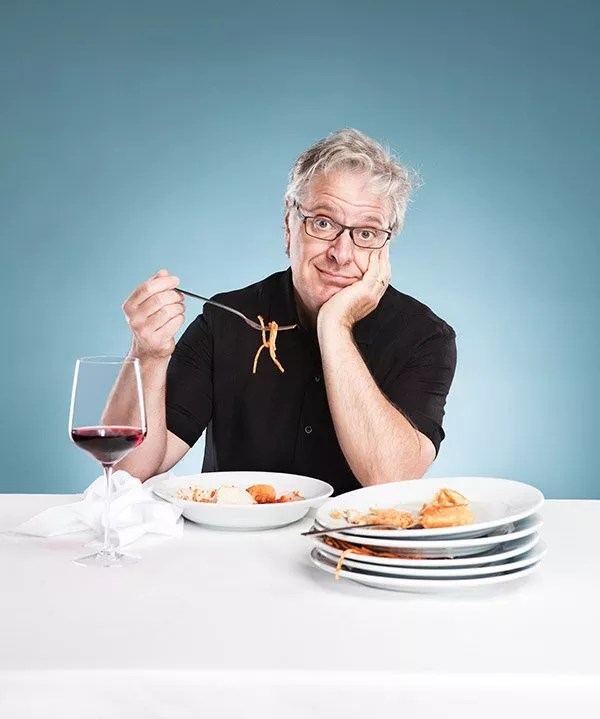
Danielle Lirette

Audio By Carbonatix
We go to restaurants for so much more than a meal. We hunger for more than food. Sometimes we want an adventure, sometimes we crave comfort. Sometimes we just want to go to a place that often feels more like home than our own home.
On the flip side, food journalism is about so much more than restaurant reviews.
Like everything else, the world of food journalism has been upended over the last three years. Unlike some things, it was already evolving before the pandemic, when restaurant criticism became an early casualty.
When we started Westword back in 1977, a big night on the town was going to the Broker to get a steak and that complimentary bowl of soggy shrimp, or maybe meeting friends at one of those newfangled fern bars, like Govn’rs Park. Despite the lack of really groundbreaking restaurants, though, the city was lousy with high-falutin’ restaurant reviewers who sounded too big for their britches (and often were). We added our own voice in the early ’80s, and have rarely been without a restaurant reviewer since.
Until now. Soon after our last critic decided to hang up her fork, COVID hit. With all of the challenges facing restaurants, the last thing they needed were reviews that assessed whether a kitchen packaged its to-go offerings in a pleasant way. That was the last thing readers needed, too. Instead, they needed to consider restaurant relief, the mental health of workers, fair wages and prices without interruption from Yelpers.

John Kessler is back at the table.
johnkessler.com
And now, as we enter the new normal, is there still a seat at the table for criticism? That’s a question I continue to chew over, so I called in a few experts: some of Westword‘s former reviewers.
Says Gretchen Kurtz (Westword reviewer 2012-2019): “Gone are the days of wig disguises and big budgets, when critics could make or break a restaurant with two stars and a thousand words. That’s a good thing, because 21st-century critics have had to become better equipped to weigh in on the entirety of a city’s restaurant scene, writing not just about ambience and a steak’s doneness, but about the industry’s broader contexts of changing business models, equity and sustainability. Armed with the food knowledge that’s a prerequisite for the job, critics can help readers find restaurants that are worth the night out while giving voice to underrepresented chefs, cuisines and restaurateurs.”
Says Laura Shunk (2010-2012): “There will always be a place for a professional food writer to give direction to readers on restaurants worth their hard-earned money – but that service journalism doesn’t have to be in the form of a review. Forward-thinking restaurant reviewers are already evolving, understanding their role more as cultural criticism than traditional food reviewing. This type of criticism is important: It helps difficult conversations about who we are and what we value find a broader audience. In a divisive era, those conversations are essential to finding a path forward. These critics see that food is a staple of our culture, and it’s another way in to understanding where we came from and where we might be going. I think that’s the future (present?) of the restaurant review.”
Jason Sheehan (2004-2010, who won the James Beard Foundation award for restaurant criticism in his first year): “There will always be space for criticism because, for me, being a restaurant critic has never really been about the food. I mean, the food is important, sure. Occasionally even vital. But it has always been there mostly as a vehicle – a way to explore a passion, a window on a moment in time, a trigger to memory and sometimes (oftentimes…) just an excuse for a really good yarn.
“If food is the thing that all of us have in common, then what, in this ridiculous age, could be more important than writing about it? What could be more important than being really, REALLY good at writing about something that touches on every vital aspect of our communal experience? To write about food is to write about time and place and history and economy, about class and politics, about love and loss.
“A bad critic exists to tell you how much dinner cost. A good one is there to tell you what dinner was worth.”
Says Kyle Wagner (1992-2004): “I think restaurant reviews are good for the industry. But we need to think about ways to approach it where we deal with problems that aren’t endemic to the pandemic. Complete evisceration needs to be on the back burner. We can’t be having kitty autopsies, as Kessler once wrote.”
And that would be John Kessler (1988-1992), the legendary food writer/editor who became a restaurant critic again (the only one on this roster to do so) when Chicago magazine resumed publishing reviews this past spring: “We started them again because dining out is so expensive and uneven now, and readers need guidance now more than ever.”
Check!